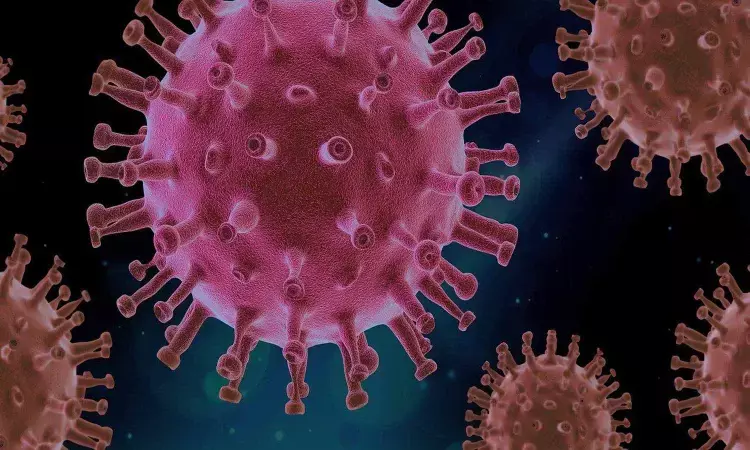- Home
- Medical news & Guidelines
- Anesthesiology
- Cardiology and CTVS
- Critical Care
- Dentistry
- Dermatology
- Diabetes and Endocrinology
- ENT
- Gastroenterology
- Medicine
- Nephrology
- Neurology
- Obstretics-Gynaecology
- Oncology
- Ophthalmology
- Orthopaedics
- Pediatrics-Neonatology
- Psychiatry
- Pulmonology
- Radiology
- Surgery
- Urology
- Laboratory Medicine
- Diet
- Nursing
- Paramedical
- Physiotherapy
- Health news
- Fact Check
- Bone Health Fact Check
- Brain Health Fact Check
- Cancer Related Fact Check
- Child Care Fact Check
- Dental and oral health fact check
- Diabetes and metabolic health fact check
- Diet and Nutrition Fact Check
- Eye and ENT Care Fact Check
- Fitness fact check
- Gut health fact check
- Heart health fact check
- Kidney health fact check
- Medical education fact check
- Men's health fact check
- Respiratory fact check
- Skin and hair care fact check
- Vaccine and Immunization fact check
- Women's health fact check
- AYUSH
- State News
- Andaman and Nicobar Islands
- Andhra Pradesh
- Arunachal Pradesh
- Assam
- Bihar
- Chandigarh
- Chattisgarh
- Dadra and Nagar Haveli
- Daman and Diu
- Delhi
- Goa
- Gujarat
- Haryana
- Himachal Pradesh
- Jammu & Kashmir
- Jharkhand
- Karnataka
- Kerala
- Ladakh
- Lakshadweep
- Madhya Pradesh
- Maharashtra
- Manipur
- Meghalaya
- Mizoram
- Nagaland
- Odisha
- Puducherry
- Punjab
- Rajasthan
- Sikkim
- Tamil Nadu
- Telangana
- Tripura
- Uttar Pradesh
- Uttrakhand
- West Bengal
- Medical Education
- Industry
Non-invasive skin swab samples enough to quickly detect COVID-19, finds new study

Researchers at the University of Surrey have found that non-invasive skin swab samples may be enough to detect COVID-19.
The most widely used approach to testing for COVID-19 requires a polymerase chain reaction (PCR) test, which involves taking a swab of the back of the throat and far inside the nose.
In a paper published by Lancet E Clinical Medicine, chemists from Surrey teamed up with Frimley NHS Trust and the Universities of Manchester and Leicester to collect sebum samples from 67 hospitalised patients - 30 who had tested positive for COVID-19 and 37 who had tested negative. The samples were collected by gently swabbing a skin area rich in sebum - an oily, waxy substance produced by the body's sebaceous glands - such as the face, neck or back.
The researchers analysed the samples by using liquid chromatography mass spectrometry and a statistical modelling technique called Partial Least Squares - Discriminant Analysis to differentiate between the COVID-19 positive and negative samples.
The Surrey team then found that patients with a positive COVID-19 test had lower lipid levels - or dyslipidemia - than their counterparts with a negative test. The accuracy of the study's results increased further when medication and additional health conditions were controlled.
Dr Melanie Bailey, co-author of the study from the University of Surrey, said:
"Unfortunately, the spectre of future pandemics is firmly on the top of the agenda for the scientific community. Our study suggests that we may be able to use non-invasive means to test for diseases such as COVID-19 in the future - a development which I am sure will be welcomed by all."
Matt Spick, co-author of the study from the University of Surrey, said: "COVID-19 damages many areas of metabolism. In this work, we show that the skin lipidome can be added to the list, which could have implications for the skin's barrier function, as well as being a detectable symptom of the disease itself."
Dr George Evetts, Consultant in Anaesthesia & Intensive Care Medicine at Frimley Park Hospital, said: "Investigating new methods of diagnosis and surveillance in a new disease such as COVID-19 that has had such a devastating effect on the world is vital. Sebum sampling is a simple, non-invasive method that shows promise for both diagnostics and monitoring of the disease in both a healthcare and a non-healthcare setting."
https://www.thelancet.com/journals/eclinm/article/PIIS2589-5370(21)00066-3/fulltext
Hina Zahid Joined Medical Dialogue in 2017 with a passion to work as a Reporter. She coordinates with various national and international journals and association and covers all the stories related to Medical guidelines, Medical Journals, rare medical surgeries as well as all the updates in the medical field. Email: editorial@medicaldialogues.in. Contact no. 011-43720751
Dr Kamal Kant Kohli-MBBS, DTCD- a chest specialist with more than 30 years of practice and a flair for writing clinical articles, Dr Kamal Kant Kohli joined Medical Dialogues as a Chief Editor of Medical News. Besides writing articles, as an editor, he proofreads and verifies all the medical content published on Medical Dialogues including those coming from journals, studies,medical conferences,guidelines etc. Email: drkohli@medicaldialogues.in. Contact no. 011-43720751


